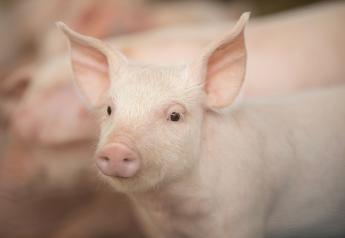Webinar to address common misconceptions of water quality

Iowa Learning Farms has hosted a number of field days in 2016 where farmers, landowners, agriculture professionals and many others have come together to learn about conservation farming practices. At these events, many attendees have had common questions, and sometimes common misconceptions, about water quality and drainage. Matt Helmers will explore some of these misconceptions during the Iowa Learning Farms' monthly webinar on Wednesday, Oct. 19. The webinar is free, and all that is needed to participate is a computer with internet access.
Many have asked what might need to change to reach our nutrient reduction goals. "Many people are surprised by the magnitude of change needed," said Helmers. "Under some scenarios, we need on the order of 7,600 wetlands and 120,000 bioreactors on the land, in addition to cover crops on over 10 million acres."
The webinar will address common misconceptions about how various practices including nitrogen management, cover crops and perennials work to reduce nitrogen losses. In addition, the webinar will touch on drainage practices that you might hear about more in the future such as drainage water recycling.
Helmers is the Dean's Professor in the College of Agriculture and Life Sciences and Professor in the Department of Agricultural and Biosystems Engineering at Iowa State University, where he has been on the faculty since 2003. His research and extension activities include studies on the impact of nutrient management, cropping practices, drainage design and management and strategic placement of buffer systems on nutrient export from agricultural landscapes.
The Iowa Learning Farms webinars are held on the third Wednesday of each month at 1 p.m. To log in, go here at 1 p.m. on the afternoon of the webinar and log in through the "guest" option. Webinar participants can ask questions during the presentation using the chat function. The webinar will be recorded and archived on the Iowa Learning Farms website for viewing at any time here.
ILF has hosted a webinar every month since January 2011. To date, there are 69 webinars to view on a wide range of topics including soil erosion, water quality, cover crops, and farmer perspectives.







